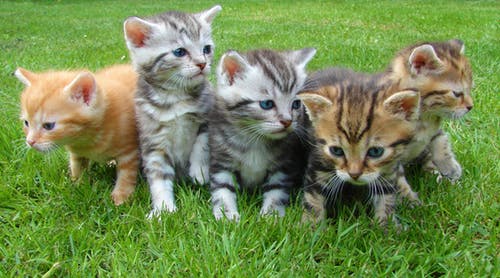FIP, feline infectious peritonitis (FCoV) is a virus of the gastrointestinal tract. The majority of infections are either asymptomatic (no symptoms) for months or even years, or cause diarrhea.
This is very common in kittens whose maternally derived antibody decreases between 5 and 7 weeks old. The majority of cases are most prevalent in cats younger than 3 years old, and especially in kittens 4 to 16 months old.
The virus is most common where there are large groups of cats living in the same house sharing food and water dishes. Using contaminated litter scoops can transmit infected microscopic cat litter particles to uninfected cats and kittens.
Other means of ingesting or transmitting FCoV is inhaling the virus when it is shed in feces, which happens when litter boxes are shared. Another method of transmission is through different body fluids, easily spread by direct contact between cats, most commonly when an infected cat grooms an uninfected cat and the infected saliva remains on the uninfected cat. When the healthy cat grooms himself he will ingest the virus.
There are 2 types of FIP:
- Effusive (wet) FIP – the clinical sign of effusive FIP is fluid accumulating in the chest or abdomen. This can cause breathing difficulties. The cat may also experience loss of appetite, fever, diarrhea, jaundice and weight loss.
- Non-effusive (dry) FIP – Symptoms of dry FIP are the same as with wet FIP, but there is no fluid accumulation. The cat may have difficulty standing up or walking, eventually becoming paralyzed. Blindness may also occur.
Your veterinarian has multiple tests to determine if your cat is suffering from a form of FIP.
While FIP is considered fatal, there are antiviral drugs that have proven promising, such as experimental drugs, GS-441524, and GC376. As of this writing, these drugs were not yet commercially available.
Felocell is an intranasal vaccine for healthy cats 16 weeks and older to help prevent cats from contracting FIP. It is available in the U.S.


Recent Comments